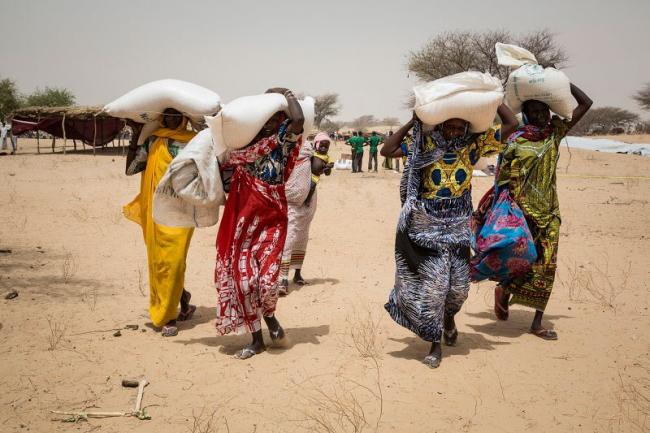
Bridging gap between relief and development can meet immediate needs, lessen vulnerability – UN chief
New York, Jan 29 (JEN): A surge in conflict-induced needs in Africa and the Middle East, coupled with an increase in climate shocks that pummel the most vulnerable everywhere, have given fresh urgency to calls for the international community to work in a new way that not only ends humanitarian needs but reduces them over time, United Nations Secretary-GeneralAntónio Guterres said Sunday.
Addressing leaders gathered for a high-level event held as part of the African Union Summit, which has been running since last week in the Ethiopian capital, Addis Ababa, Mr. Guterres underscored that this new way of working is not about shifting funding from development to humanitarian programmes or vice-versa.
“It is about recognizing common goals and optimizing existing resources and capabilities to help all people in situations of risk, vulnerability and crisis. It is about working better together to reduce humanitarian needs over the medium to long-term,” said the UN chief, spotlighting the aim of one of the key outcomes of the 2016 World Humanitarian Summit.
Two years after the international community outlined the changes that are needed to alleviate suffering, reduce risk and lessen vulnerability, Mr. Guterres said it was clear the call to bridge the humanitarian-development divide will take time and a diverse range of actors, including those outside the UN system.
“We must recommit to a focus on results and holding ourselves accountable by fully articulating collective outcomes,” he said.
Amid a surge in conflict-induced needs in Syria, Yemen the Democratic Republic of the Congo (DRC), South Sudan and elsewhere, the UN chief said he had launched a push in diplomacy for peace, including mediation, to end and prevent conflict.
As for the increasingly frequent and more intense climate shocks that are also creating record humanitarian needs, and heavily impacting the most vulnerable, the international community must redouble its efforts to address climate change, as well as to increase the resilience of those impacted by drought, floods and other disasters.
“We have a moral obligation to do better and we have the tools and knowledge to deliver on that obligation,” said the Secretary-General, underscoring: “We must break down the silos that have existed for too long between humanitarian and development actors.”
He said experience from countries like Ethiopia, Uganda, Yemen and Somalia, where the new approach is working, offers four valuable lessons:
The UN and development partners must strengthen the capacities of national and local actors to effectively respond to needs, risk and vulnerability;
Collectively start from a common understanding of the challenges and then sharing data, information and analysis;
Carry out risk-informed joint planning, with governments and all partners, to reach those furthest behind; and
Redesign the financing architecture to promote predictability, flexibility and multi-year financing, as well as engage international financing institutions and the private sector actors, including insurance actors, to develop innovative solutions.
Noting that the world spends much more energy and resources managing crises than preventing them, the Secretary-General said the UN must uphold a strategic commitment to a 'culture of prevention,' and he pledged to work with Africa “towards ending suffering and restore the human dignity of every person.”
Photo: WFP/Marco Frattini
Support Our Journalism
We cannot do without you.. your contribution supports unbiased journalism
IBNS is not driven by any ism- not wokeism, not racism, not skewed secularism, not hyper right-wing or left liberal ideals, nor by any hardline religious beliefs or hyper nationalism. We want to serve you good old objective news, as they are. We do not judge or preach. We let people decide for themselves. We only try to present factual and well-sourced news.







